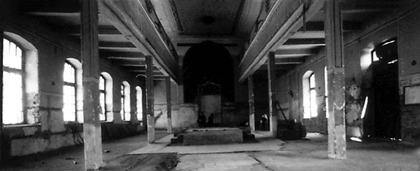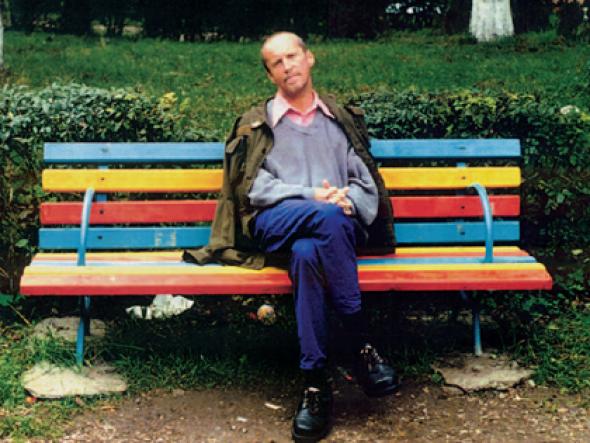Reclaim the Media Romania
In advance of the event, Tactical Media Laboratory organiser Joanne Richardson considers the potential for Dutch grown ideas around media activism to transmit to the local context of the provincial Romanian town of Cluj
Next 5 Minutes (N5M) began in Amsterdam in 1993 as a festival of tactical media that explored the new ‘do it yourself’ media of opposition produced by groups who felt excluded from the wider culture. Since then, the tactical media universe has expanded as greater numbers of people around the world are establishing their own media presence as a result of cheap production tools and better distribution. In light of these changes, the N5M team decided to decentralise and disperse. Next 5 Minutes 4 is taking shape as a series of interlinked Tactical Media Laboratories (TMLs) in Amsterdam, Barcelona, Berlin, Cluj, Delhi, Kabul, Moscow, New York, Sydney and Zagreb. These TMLs are not being organised by a central committee in Amsterdam scouting for adequate locations. Instead, the selection of themes, organisational work and fundraising are locally coordinated efforts, independent but linked to the brainstorming of the international board. Each event will be documented in a shared online environment, and there will be a final meeting of the different tribes in May 2003 in Amsterdam.
Although some members of the Amsterdam team were initially hesitant about the idea of a TML in Cluj – perceived as a place without adequate infrastructure and funding – I thought it important to challenge the perception that this kind of event had to happen somewhere else since Romania is a place where apparently nothing happens. The ‘media question’ and its relation to politics, hailed as the original N5M horizon, seems especially relevant in Romania where leading politicians retain economic ownership of the media, from television stations to the new museum of contemporary art. The supposed democratisation of the media celebrated since 1989 is a sham: if before ‘89 the two hours of daily television were dominated by news of Ceausescu’s visits to farms, his latest industrial discovery, or his inauguration of a power plant on the Danube, now, in between music spots, infomercials, and the most recent American sitcom, the news is filled with endless reports of prime minister Adrian Nastase’s negotiations to get Romania into NATO and the EU, his work to erect the newest bridge or his donation of a vast private collection to the museum of contemporary art. In this big leadership spectacle, the contributions and ideas of individuals often fade into the background, and only the so-called failures of particular groups come to the surface as racial stereotypes, fueling a desire to blame the dismal economic situation on internal enemies. This is especially visible in Cluj – a city with a prominent Hungarian population and culture – where the xenophobic mayor has ordered Romanian flags on all streets, benches painted in national colors, and archeological digs in front of its Hungarian statues, intended to prove the Roman origins beneath the Hungarian surface.
Cluj is also a city with a lively autonomous scene and an interesting mingling between a postsituationist group of philosophers, the only leftist press in the country (Idea), and a former synagogue remade into an art and social center (Tranzit), which has become the main cultural meeting point. But this circle of ‘alternative’ culture has so far been drawn around art and theory rather than seeking direct intervention in media production. This was the context for deciding to start a year-long series of media culture symposia, technical tutorials, and production workshops in video, radio and web campaigning, which seek to provide media literacy and access for students, youth and minority groups.
 > Joanne Richardson, Interior of Tranzit, Cluj, Romania
> Joanne Richardson, Interior of Tranzit, Cluj, Romania
The kick-off is the Tactical Media Laboratory on 26 Sept – 3 October, which I am organising in collaboration with Tranzit and Idea. The event will include debates on media activism, several production workshops, and meetings between community groups and policy makers to discuss the broadcasting of independent news and alternative interest shows on existing channels. Many of the participants are coming from South-East Europe since one of our aims is to open a discussion about the public domain and media democracy in postsocialist Europe, and to strengthen cooperation between artist-founded media centres in the region which have become the primary vehicles for media education and access to production.
N5M co-organiser David Garcia says it’s no accident that the idea of tactical media was born in Amsterdam, out of a legacy of squatting, pirate radio, and anarchic media experimentation, and specifically in opposition to advanced (western) capitalism. The TML in Romania is not an attempt to import a fashion from abroad; the eastern European context can be a test of the promise as well as the limitations of tactical media. In Romania and many post-socialist countries there’s a quick suspicion of slogans that carry the baggage of militarism – like ‘tactics’, which is part of an old vocabulary of warfare. The militant activist is a dubious character. In old communist lingo, the term ‘activist’ used to mean someone who agitated and propagandised in the factory on behalf of the Party. This is not to say that activism doesn’t exist here – it takes many shapes, but has no label. Out of a mistrust of names and bombastic theories, an experimental pragmatism prevails which picks over ideas, finds what’s useful for the moment, and abandons the rest. While it seems unlikely that the term ‘tactical media’ will become a new slogan or local rallying cry, concrete examples of selfproduced media and creative interventions that have achieved results in other places might become contagious, igniting new desires.
Joanne Richardson is a media theorist, editor of subsol webzine [http://subsol.c3.hu], and freelance organiser, currently working as co-ordinator of metaMEDIA program at Idea Foundation, Romania.
Mute Books Orders
For Mute Books distribution contact Anagram Books
contact@anagrambooks.com
For online purchases visit anagrambooks.com








